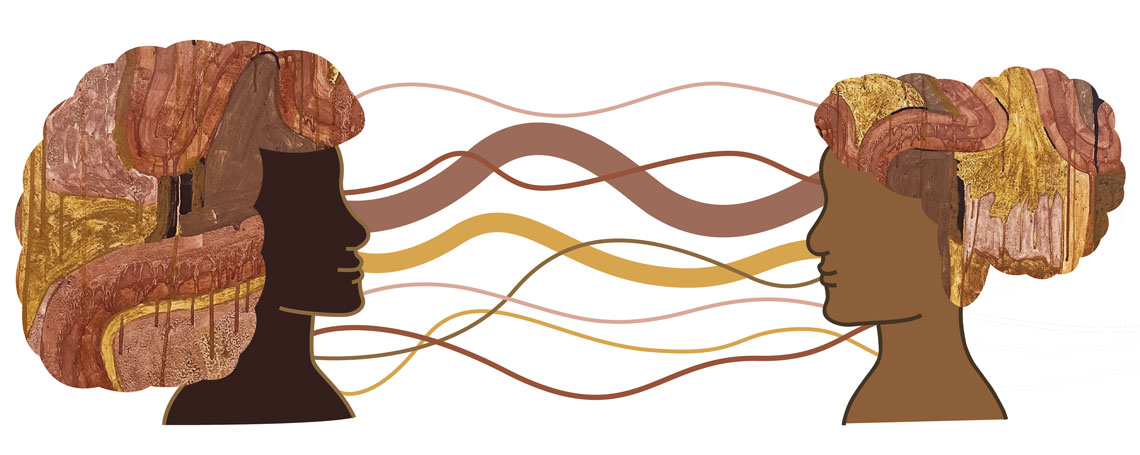The Agbara philanthropic fund, created during the pandemic to support Black women through income generation and entrepreneurship incentive programs, is setting up a research center to collect data on social inequalities in Brazil and conduct research on subjects related to the Black population, philanthropy, and inclusion. The effort is expected to cost R$2 million and involves recruiting 27 students or researchers, one in each state of the federation.
The initial objective is to facilitate a census of entities and ongoing actions in Brazil that support Black people and that are also run by Black people, which operate within a concept defined as Black philanthropy. In the United States, this is already a widespread movement. In 2011, organizations dedicated to promoting racial equality chose August as Black Philanthropy Month and have since promoted activities during this month of every year to reflect on challenges and propose new actions. In Brazil, this type of philanthropy has its origins in the days of slavery, when support networks emerged to raise resources, buy emancipation, and support religious brotherhoods for enslaved and freed people.
According to data from a survey conducted last year by Iniciativa Pipa, a philanthropic entity based in Rio de Janeiro, 74.1% of people working on the front line in projects in the peripheries are Black or mixed race, as are 80.6% of the people benefiting from these projects. The study “Periferias e filantropia – As barreiras de acesso aos recursos no Brasil” (Peripheries and philanthropy: Barriers to accessing resources in Brazil) interviewed more than 600 managers of organizations and cooperatives. Another relevant data point is that 46% of the projects led by Black people in peripheral areas raise less than R$5,000 per year. These are, in general, activities that people carry out in parallel with other paid work. However, there is no detailed information about these individuals or projects. The Agbara Fund census aims to interview these people and produce an analysis of Black philanthropy in Brazil, to be released by the end of the year. The research center also plans to publish the Guia de boas práticas para promoção da filantropia negra (Guide to best practices for promoting Black philanthropy).
“While Black philanthropy is well-established in the United States, here everything needs to be analyzed practically from the ground up,” says Luana Braga Batista, the research center’s coordinator, and a doctoral student in social anthropology at the Federal University of Rio de Janeiro (UFRJ). She emphasizes that, in Brazil, even institutes created by successful Black professionals, such as artists and football players, don’t usually develop programs focused on racial issues. In general, these are more comprehensive social initiatives, which, although they reach a public made up primarily of Black people due to the vulnerability of this population group, are not designed specifically to combat racial inequality. The Baobá Fund for Racial Equity, created in 2011, is the best-known example of an NGO that has an endowment fund for specifically supporting projects aimed at the Black population and the fight against racism.
The Agbara center will be supported by institutions that already work with the fund’s initiatives, such as the Global Fund for Community Foundations, based in South Africa, the Tide Setúbal Foundation, focused on working with social development in urban peripheries, and the Fundação José Luiz Egydio Setúbal, which mainly supports projects for children’s health. “There is an alignment of goals between Agbara’s initiatives and our foundation, which views support for structuring the philanthropic sector as one of its fundamental priorities,” says Ana Claudia Andreotti, a project analyst at Fundação José Luiz Egydio Setúbal, which will invest R$160,000 in the first phase of the research center, with the prospect of making further contributions.
The characteristics and trajectory of the Agbara Fund explain its interest in Black philanthropy. The initiative emerged in Campinas, in 2020, under the leadership of sociologist and pedagogue Aline Odara. With her experience organizing fundraisers to support friends and other people in difficulty, during the first months of the pandemic she launched a fundraising initiative whose initial goal was to have 20 people donate R$20 per month for a year, which would provide R$400 monthly to vulnerable Black women. The news spread around the University of Campinas (UNICAMP), where Odara was studying for a master’s degree in education. The number of donors jumped to 60 in five days and to 300 in three months and began generating a monthly collection of R$6,000. With the increase in scale, Odara, now the fund’s executive director, felt she needed to formalize the initiative. Agbara means “power” in Yoruba, which is the language of a significant part of Nigeria and several other African countries and exists in Brazil through its many cultural and religious traditions of African origin.
The fund first needed to establish criteria for who would receive help; Black women caring for at least three children by themselves would be a priority. Another criterion was to allocate 50% of the funding to the North and Northeast regions, as these regions require more social investment than the others. In addition to income transfer, the project evolved into financing and mentoring small businesses led by Black women. The Fund’s “Avança Preta” project has already provided technical training for more than 20 income-generation initiatives that mobilize Black women. There are projects for specific groups, such as recyclables collectors or, to cite a recent example, the inclusion of Black women to work in the logistics and supply chain at the port of Navegantes, in Santa Catarina.
In three years, the fund raised more than R$6 million and made 2,500 individual investments, both through direct financial support in projects and by providing training to Black women. The work is performed by ten employees with varied backgrounds, all of them Black. “When a Black woman moves upward, she brings several other people up with her. Her daughter can go to school, she can start to support her sister, she gives a boost to the neighborhood businesses where she becomes a customer,” concludes Aline Odara.
Republish